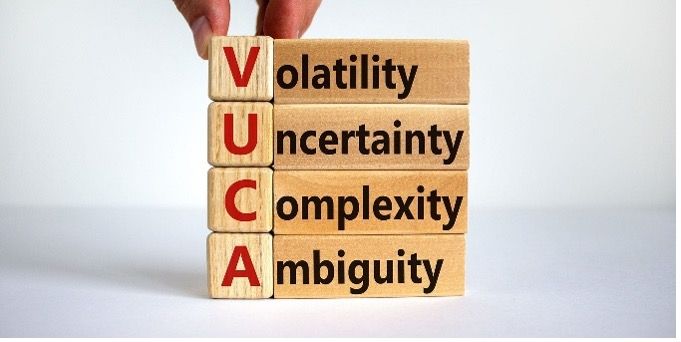I must start this post off with an admission.
I had a really hard time coming up with a topic because everything else seems trivial as I watch, read, and absorb the news coming out of Ukraine. I predicted in December of last year that Russia would invade Ukraine, but at that time, I thought it would be much like their 2014 seizure of Crimea: mostly bloodless and quickly forgotten by the international community. This time it's very different, with civilian casualties adding up and nuclear power plants taking hits. I also see the potential for a significant shift in the power structure in Russia. Things have really gone sideways, as they say. We are also witnessing a terrible humanitarian crisis unfold: millions of refugees are fleeing for the west and families being separated under the most awful of circumstances. The horrors of this situation make a little blog like this seem extremely trivial. I have also witnessed incredible bravery by President Zelenskyy and the people of Ukraine. Hopefully, some of our politicians will adopt this selfless style of leadership, but I'm not holding my breath! As I write, and as you read, I hope we all keep the well-being of President Zelenskyy and the Ukrainian people in our thoughts and prayers.

At any rate, I have been pondering what we can take away from watching this conflict unfold and put to some use in our critical thinking in other areas. I came across this idea of "Negative Capability." What is negative capability, you may ask!?
According to the Encyclopedia Britannica, negative capability is a writer's ability, "which Shakespeare possessed so enormously," to accept "uncertainties, mysteries, doubts, without any irritable reaching after fact and reason," according to English poet John Keats, who first used the term in an 1817 letter. An author possessing negative capability is objective and emotionally detached, as opposed to one who writes for didactic purposes; a literary work possessing negative capability may have beauties and depths that make conventional considerations of truth and morality irrelevant.
As is my habit, I will now attempt to connect this idea to investing in these unusual times.
A prevalent theme taught
in business schools and discussed at length online is the idea of
VUCA. This idea is that most businesses operate on a day-to-day basis in
fairly "calm waters." For the vast majority of most businesses' existence, they
go through long stretches where the days kind of go by, and they repeat what they
do, as efficiently as possible, but generally don't see too many huge stresses.
We like to see steady, unexciting, but consistent returns in the banking
industry, for example. Volatility isn't really something we seek out in our
earnings, especially not in our loan or investment portfolios. VUCA is the idea
that there will be times that are:
- Volatile
- Uncertain
- Complex
- Ambiguous

As the famous quote by Thomas Paine during the Revolutionary Era, "These are the times that try men's souls." It is in times of VUCA that excellent management and judgment really stand out. I think we can say we are now officially in a VUCA period. The last time we really experienced a severe situation like this in the banking industry was in the 2008-2010 era. One could argue that the pandemic was additionally stressful but in a less financial way.
China is eyeing Taiwan. If they decide to invade Taiwan, what we've seen so far might become a rounding error.
VUCA
So, the question that faces us is, how do we handle these situations? I think as an industry, we need to accept the challenges we face and be strong leaders.
Here are a few simple ideas that I would humbly ask you to consider:
- You don't need more complex systems. In times of uncertainty and confusion, you need to rely on time-tested and simple-to-understand solutions. As Einstein famously said, "Make things as simple as possible, but not simpler." In this type of volatile market, I think that means that we need to figure out how to count the dollars and outcomes of multiple scenarios—over time and in different scenarios. This is what I have been encouraging over the last several years.
- If you want to be a leader, you need to lean into the uncertainty. What I mean by this is that leaders are forged in the fires of trying times. A ready and timely example of this is Mr. Zelenskyy. It has been widely reported that the US offered to extract him from Ukraine, but he chose to stay and fight. It has also been reported that there have been at least three attempts on his life since the attacks began. He has become an incredible source of pride and encouragement for his people. Now, I am not suggesting anything that dramatic, but I am suggesting that this is an opportunity to lead. Please don't just sit back and take a "wait and see" approach.
Learn to stand in complex and uncertain situations. No one knows what will happen in Eastern Europe. No one knows what will happen to interest rates, the oil markets, stocks, COVID-19—or for that matter, anything else in the future.
When we look back at this time several years from now, we will really be able to see who the great leaders were. History always shines the light of results and reality back on times when uncertainty and confusion reigned.
I think this will be a period where truly great leaders emerge. Demonstrating leadership in times of chaos and confusion will be noted and appreciated by the stakeholders in your institution, from customers, through the Board, and even at a regulatory level. Look at this time period as an opportunity to be one of those leaders, one that will spring to everyone's mind as the next crisis emerges.
We are in a highly volatile, uncertain, complex, and ambiguous period. It's the classic VUCA situation, and that's never easy.
I'll conclude with this
recognition: as messy and crazy as the market may seem today, dealing with it
is nothing compared to the incredible hardships being faced by our friends in
Ukraine. They are being attacked by a ruthless, remorseless dictator. Please
take a moment and say a quick prayer for those being crushed by this conflict.
Final, final thought: According to Google (which is always right??), Varenyky is the most popular Ukrainian food. I have never tried it but is apparently very similar to a pierogi. I'm going to try to make a point of enjoying it this week.
We have an incredible list of charities that we are supporting during this crisis. If you have interest, please reach out and we will send you more information on how to get involved.
Fill out the form below to subscribe to my weekly blog.
The information, analysis, guidance, and opinions expressed herein are for general and educational purposes only and are not intended to constitute legal, tax, securities, or investment advice or a recommended course of action in any given situation. Information obtained from third-party resources are believed to be reliable but not guaranteed. All opinions and views constitute our judgments as of the date of writing and are subject to change at any time without notice. Past performance does not guarantee future results.


